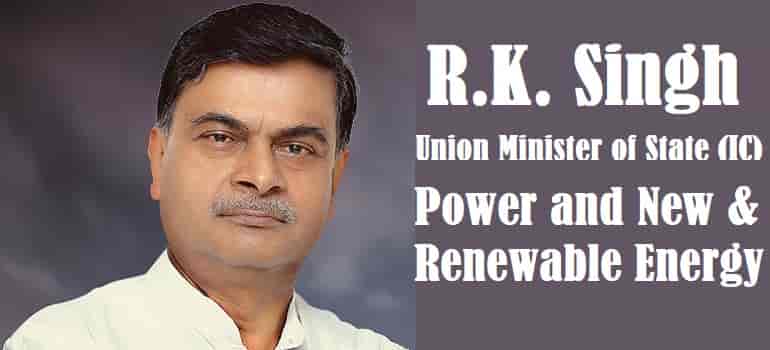Minister emphasizes removal of market barriers for domestic manufacturers engaging in unreasonable pricing
India is set to issue carbon market rules within the next two weeks, according to the Minister for Power and New & Renewable Energy, RK Singh.
The carbon market legislation has already been passed, and the government has received feedback from stakeholders on the circulated draft.
In an interview with CNBC-TV18, Minister Singh highlighted the government’s efforts to promote domestic equipment manufacturers and the Make in India initiative.
However, he emphasized that if domestic manufacturers engage in overcharging and unreasonable pricing, the government will remove market barriers and subject them to global competition.
Minister Singh acknowledged the emergence of trade barriers in developed countries but noted that capacity addition in renewable energy has largely been driven by the private sector. He mentioned significant investments by Singapore’s sovereign wealth fund and other funds through different companies. The Minister provided insights into the progress of two domestic manufacturing schemes, revealing that the first scheme has resulted in a manufacturing capacity of 8,700 MW, currently under construction. The second scheme is expected to yield a manufacturing capacity of 39 GW, commencing soon. He stated that there are plans for the construction of an additional 47-48 GW capacity and an estimated 40-50 GW capacity without any manufacturing schemes.
With a target of reaching a cumulative renewable energy capacity of 100 GW by 2030, Minister Singh expressed India’s potential to become a major exporter of renewable energy equipment. Indian solar PV modules are already being exported to the US, while wind equipment is being exported to various developed countries. Responding to concerns about China building dams on the Brahmaputra River, the Minister mentioned the construction of water storage projects downstream to mitigate constant flooding. Additionally, he highlighted a proposed hydropower project in Siang, Arunachal Pradesh, which is expected to be India’s largest.
Regarding power subsidies provided by states, Minister Singh stressed the importance of paying for power rather than relying on loans. He mentioned that the Union Government has implemented rules to ensure that power subsidies offered by states are paid for; otherwise, power supply will be discontinued. He criticized states offering free power without funding it from their revenue, which further exacerbates their debt issues and delays salary payments.
Minister Singh underscored India’s achievements in reducing emissions intensity, stating that the country has already reduced its net emissions intensity by 33 percent as per its Nationally Determined Contributions (NDCs) by 2021. India aims to further reduce emissions intensity by 45 percent by 2030. He highlighted that India’s energy transition actions align with keeping global temperature rise below 2 degrees Celsius. India’s per capita emissions of two tonnes are significantly lower than the global average of six tonnes, and its contribution to the global legacy CO2 load is only 4 percent, despite having more than 17 percent of the world’s population.


